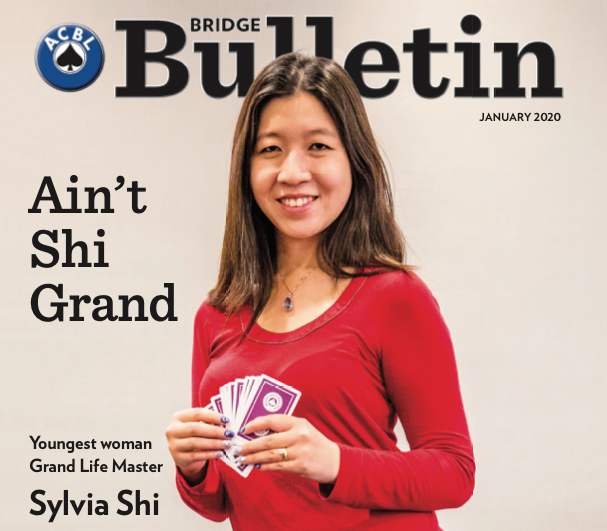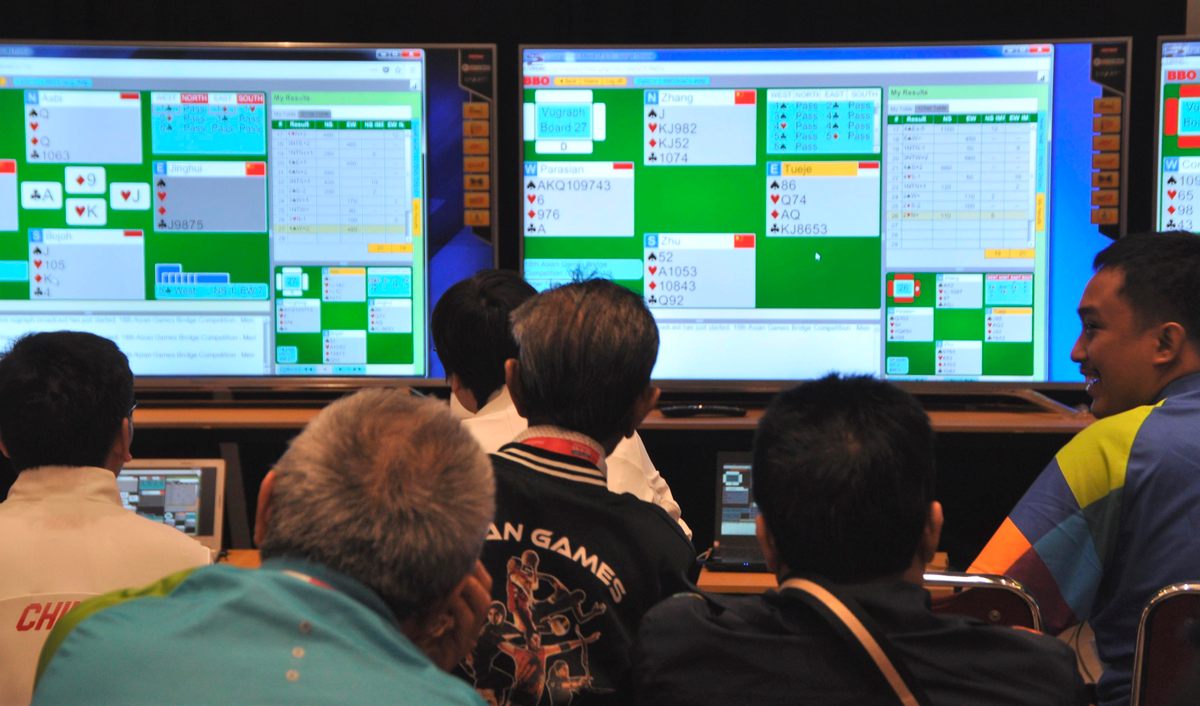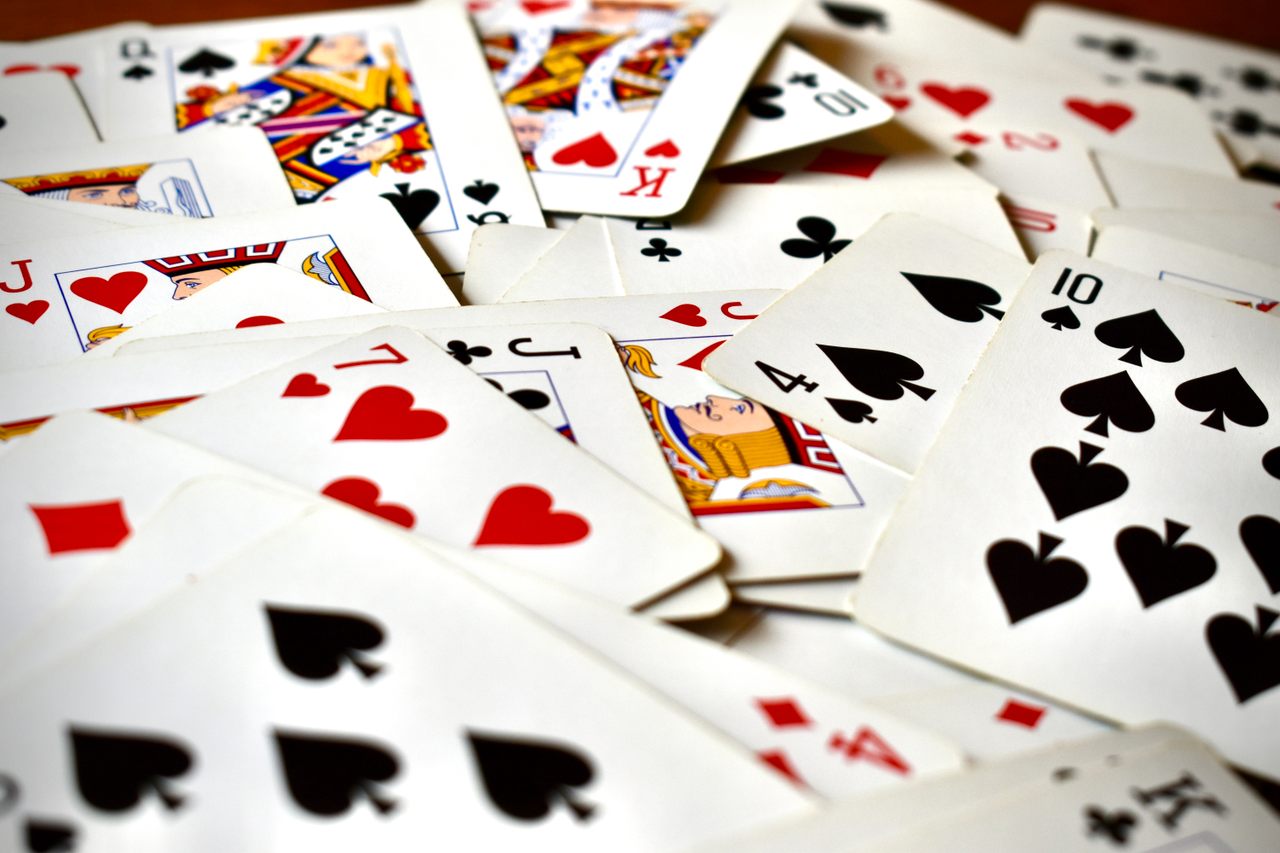How the Pandemic Brought Cheating to the World of Competitive Bridge
The game’s culture cares deeply about its codes of conduct, but online play rewrote the rules.

In early 2020, Sylvia Shi was a rising star in the bridge world. The winner of several national and international tournaments, the San Francisco–based business consultant was named a Grand Life Master in December 2019. Shi stood out in the sport, and not just for her talent: As a young Asian woman in a historically white, male space, Shi found herself the center of attention, featured in bridge publications and touted as the game’s future. Yet even as a rising star, Shi still struggled to gain sponsorship from the wealthiest clients—the method professionals rely on to make money at the game, since tournaments don’t carry purses—because, she knew, she didn’t look like many patrons’ typical image of a bridge player.
In the summer of 2020, Shi stood out yet again in the bridge world: Shi cheated. And she got caught.
Like everything else, when the pandemic hit, bridge clubs shifted abruptly from in-person to online. For bridge, the move was particularly rough. Bridge Base Online (BBO), a social online bridge platform, had existed for several years, but you couldn’t earn “master points,” the game’s main achievement currency, from an online tournament. So before the pandemic, nobody took these internet games seriously. Besides, the whole infrastructure of the bridge world is fundamentally social. For the uninitiated, contract bridge is a trick-taking card game played with a 52-card deck, and four players split into two teams. It has a long history and a dedicated, intense player base. And for that base, bridge isn’t just a game, it’s a lifestyle. Not only do you play with a partner, but the life of a bridge player is built around the club—several hours before and after games, with food and chatting between matches. This bridge world (also the name of the oldest continuously published periodical about contract bridge) is a large part of the reason bridge players skew octogenarian, as retired people are a lot more likely than others to have several hours to play a card game on a Tuesday afternoon.

Bridge clubs around the country make money through membership fees, so the American Contract Bridge League (ACBL), which organizes all official club play in the United States, partnered with BBO to move its club games to this platform when people could no longer safely meet in person. With live play gone, the ACBL began setting up officially sanctioned games through BBO.
In April 2020, Shi realized she could “self-kibitz” her online matches. In other words, she could log in with a different account and see the entire game—everyone’s cards. Kibitzing––that is, spectators knowing everyone’s cards so that these non-players can analyze the situation in real-time––is a time-honored part of bridge world. So, especially at the beginning of quarantine, when, as Shi put it, “this was not really reality,” self-kibitzing didn’t seem like that big a deal. Everyone could do it, so Shi figured that everybody was doing it. “The way it felt to me,” Shi said, was like “eating an entire bag of potato chips. While you’re eating it, it’s nice. Afterwards, you feel pretty disgusted. ‘Okay, I shouldn’t be doing this––but I’ll move on.’”
But Shi didn’t move on. From April through June 2020, Shi self-kibitzed whenever the software would let her. Her own partners didn’t even know that she was cheating. Shi thought that all the games where she was able to self-kibitz—sometimes the software wouldn’t allow anyone to watch as a spectator—were casual affairs. But, as it turned out, one was an official ACBL-sponsored game, and someone reported her to the National Recorder, the central office for all ACBL complaints.

Shi confessed her cheating on BridgeWinners, a popular forum, on July 22, 2020, and explained her motivations. “I didn’t do it for money, glory, results, victories, some sort of fulfillment,” Shi wrote. “I wasn’t under pressure to win or do well in any way. I did it because it was so, so easy.” The board convened, and Shi received a harsh punishment: suspension for three years from official ACBL games, meaning she was frozen out of tournaments and earning master points until July 2023. She’s reinstated now, but on probation for an additional three years.
Cheating at bridge is hardly new. In fact, the game has had a spy-vs.-spy ethos since modern contract bridge was codified over a century ago. Before the pandemic, cheating meant exchanging Unauthorized Information (UI) with your partner via a pre-arranged code––think orchestrated cigarette-puffing or toe-tapping, a tugged earlobe or a sneaky, seemingly innocuous keyword. Since this form of bridge cheating has always existed in a murky borderland between good strategy and underhanded tactics, players have to agree on very particular, highly codified boundaries to establish the difference between being in sync with your partner and knowing too much.
In the mid-2010s, Norwegian player Boye Brogeland led a charge to start cracking down on UI cheating, going so far as to turn in two of his own teammates, an Israeli duo whose betting patterns clearly showed they were colluding. (In the form known as duplicate bridge, you and your partner make a team with another pair. In team matches, each pair will play against both pairs from the other team.) Allan Graves, another member of Brogeland’s team, says that sharing UI “violates a sacred trust. It’s extremely egregious. It would be like investment advisor stealing your money, or the Chicago Black Sox agreeing to throw the World Series.”

A huge difference between online and in-person cheating is that online you can cheat solo, without your partner even knowing. Another huge difference is that it is far easier to cheat using UI—there’s no need for a secret code. You can openly talk about your hands when you’re online, without the other team hearing; all you have to do is call, or text, or Zoom with, or yell across the room. So if everyone assumes everyone else is cheating—well, why bother playing by the rules?
The current ACBL National Recorder is Robb Gordon, an affable bridge professional in Arizona. In 2019, the office saw about 200 complaints, nearly all of them related to pedantic club etiquette: so-and-so takes too long to bid, thus-and-such person walked out in frustration. But during and after pandemic, Gordon’s job exploded. “We handled about 1,000 memos” in 2020, Gordon says, “and over 95 percent of them were serious ethical issues.”
Unlike poker, chess, even backgammon, top-tier bridge events don’t have prize money. Instead, professional players make money through the patronage of other, well-heeled bridge enthusiasts. As Jeff Bayone, owner and operator of several bridge clubs in New York and author of A Taste of Bridge, puts it, “It’s as if I wanted to play tennis at top level, and I was a good social player, for $5,000, I could hire Djokovic as my doubles partner,” and then play with him in a Grand Slam tournament. “As a bridge pro,” Shi says, “part of your job is playing bridge, and part of it is arranging the client’s bridge-related activities and keeping the client happy.”

The reason that bridge cheating is such a big deal is less about money and more about the culture. All game enthusiasts love their sport, but bridge people are intensely passionate—not just about playing, but about codes of conduct. “If we equate the bridge world to all the other worlds—it’s just like chess, backgammon—in any competitive event, whether it’s for money or glory, they’re going to cheat,” Bayone says. “It’s happening to bridge world, exactly the same proportion as anywhere else. But bridge people are so upset that people are ruining our beautiful sport. ‘How dare you! This is bridge! Don’t you have any sense of pride?’ It hurts us profoundly, not because of the amount of cheating, but because of the depth.”
Shi hoped that by coming clean, she would encourage others to do the same, and that her harsh sentence would help clear up the pervasive issues that have emerged with online bridge. However, Shi’s example has hardly paved the way for more confessions; folks have retrenched and retreated, for fear of the opprobrium of the community. And those who have confessed got much less severe sentences than Shi did. Curtis Cheek, who’d won the 2019 Sportsmanship Award, got, as Shi put it, “strong-armed” into confessing, but the board reduced his sentence.
Asked why she didn’t appeal the ACBL’s decision, Shi says, “Weirdly enough, the whole situation has been positive for me as a person.” Taking time off has offered a reset, made her slow down and realize what she loves about bridge. “Maybe when I come back,” she says, “I’ll be able to play bridge for fun.”
Adrienne Raphel is the author of Thinking Inside the Box: Adventures with Crosswords and the Puzzling People Who Can’t Live Without Them, a New York Times Book Review Editors’ Choice; What Was It For, winner of the Rescue Press Black Box Poetry Prize; and Our Dark Academia.











Follow us on Twitter to get the latest on the world's hidden wonders.
Like us on Facebook to get the latest on the world's hidden wonders.
Follow us on Twitter Like us on Facebook